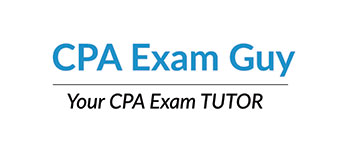While earning your Certified Professional Accountant certification is a huge accomplishment, it doesn’t mean you’re all done studying! That’s because CPAs are required to obtain Continuing Professional Education (CPE) credits after earning their accreditation to ensure they keep their finger on the pulse of best practices in the accountancy profession.
In this article, we’ll walk you through exactly what a CPE is, how CPE requirements and rules work, and the most critical part… how to earn them!
See the Top CPA Review Courses
- Becker CPA Review Course ◄◄ #1 Rated CPA Prep Course of 2026
- Gleim CPA Review Course ◄◄ Most Practice Questions
- UWorld CPA Prep Course ◄◄ Best Video Lectures
- Surgent CPA Prep Course ◄◄ Best Adaptive Technology
- Lambers CPA Review Course ◄◄ Best Testing Software
What is Continuing Professional Education (CPE)?
CPE Rules and Requirements
The standards for requirements that we mentioned above are published jointly by two major CPA organizations – the National Association of State Boards of Accountancy (NASBA) and the American Institute of Certified Professional Accountants (AICPA).
These two organizations have created the process for selecting, reporting, and reviewing CPE credits. Furthermore, these institutions outline standards that each education provider must meet to qualify as a CPE Sponsor.
The actual number of CPE credit hours you’ll need varies on the state where you’re licensed to practice accountancy. These can range anywhere from 40 hours (Alabama) to 120 (AICPA membership), and are subject to additional specifications.
A complete listing of state requirements is available on the NASBA website. You’ll also see how long the period for accumulating these credits is. It could be anywhere from 1 year to 3 years, depending on your state. I really love Becker CPE because it meets requirements for most states and has one of the best subscription offerings around.
Learn More About The CPA Exam
- The Ultimate Guide To The Audit Exam
- CPA Salary Guide: How Much Can You Make?
- CPA Exam Sections & Testing Windows
- 43 FAQ's for CPA's
- Top International Destinations to Take the CPA Exam

How to Report CPE Hours
To accurately report your hours and get the credits you deserve, hang onto any supporting documentation for your CPE courses for as long as possible! NASBA recommends a minimum of five years, to be on the safe side.
Here are a few examples of the type of documentation you should keep:
- Certificate or verification from CPE program sponsor for independent study or group learning
- Records or transcripts of grades for university or college courses
- Certificate of attendance for noncredit classes
- Copy of publication naming CPA as an author or contributor
- Course Development documentation naming CPA as a contributor
Additional examples of documentation are available in the Standards for CPE programs.
How to Earn CPE Credits
There are a ton of different CPE programs available to participate in, as well as ways to collect credit hours. Since you’re probably incredibly busy as a CPA, tons of long-distance and self-study courses are also available for your convenience!
Keep reading to learn a few ways to earn those credit hours and satisfy the requirement. Before choosing a method below, make sure it meets your specific state requirements:
1. College Courses for Continuing Professional Education
If you have a college campus nearby, or the opportunity to take an online course at a university in one of the fields of study outlined above, this is a great way to earn CPE. Depending on the length of the individual courses you choose, most semester-long classes (16 weeks) can be converted into 15 credits, with quarter classes (8 weeks) being equal to 10 CPE credits.
2. Teaching Material
You know what they say: to master a subject, you must teach it! Most state boards of accountancy will recognize credits for delivering a lecture on a profession-related topic. You can also potentially earn credits on writing an article or contributing a book for publication. Check to see if this is allowed in your state, and what limits (if any) there are on credits you can claim for your work.
3. Live Webinars Can Count as CPE
Live webinars from accredited CPE sponsors are more popular than ever; for example, providers like Becker CPA offer unlimited CPE credits. Topics range from auditing to tax reform and yearly tax updates. Typically, you can earn as many as eight credits depending on the webinar you choose.
Self-study webcasts are also available on-demand if you can’t attend a scheduled session.
4. CPA CPE Courses
Many sponsors also offer CPE update courses for several topics. These include accountancy & audit, government and not-for-profit, and tax updates. These continuing education courses keep you up to date on new changes in regulations and guidelines, helping you in your professional journey and performance. Two of my favorites (other than Becker) are Illumeo and Lambers.

Main Takeaways
Continuing Professional Education is a universal requirement to keep your Certified Public Accountant professional status current. However, the specific requirements vary from state to state. Remember when you’re selecting your chosen method of study that your local state board of accountancy has the final say in whether your credits will count towards CPE.
To see a side-by-side comparison of the top CPE courses available, Click Here!

